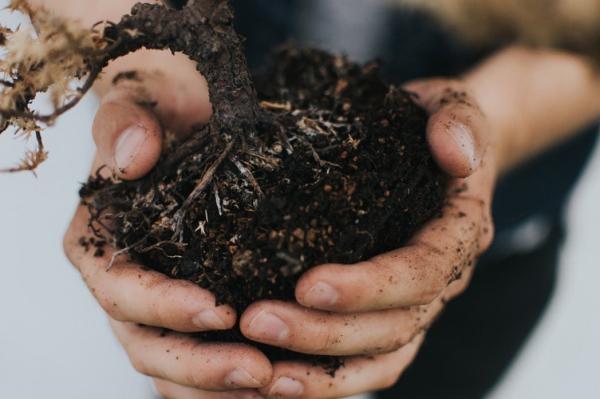Washington State to Become First to Allow Human Composting
- April 23 2019
- 3 min read
Washington State to Become First to Allow Human Composting

Death. It's an inevitable part of life. But, what to do with the body? There are plenty of eco-friendly options, including biodegradable caskets that return to the earth with the body (such as wood, cardboard, and woven materials such as bamboo or wicker), shrouds, urns designed to be buried and have a tree planted on top, sprinkling the ashes of a loved one into an artificial coral reef, and having your ashes mixed into a professional soccer field when it's reseeded the next season. But, have you ever heard of "human composting?"
Washington State is expected to become the first to legalize a burial alternative that will turn bodies back into soil within weeks.
A bill allowing "natural organic reduction," also known as "human composting," has passed the legislature and ended up on the desk of Governor Jay Inslee.
Inslee is running for president in 2020. His campaign is all about climate change. A spokeswoman for his office has said that the accelerated decomposition process "seems like a thoughtful effort to soften our footprint" on the planet.
Take a "thoughtful effort to soften your footprint" on the planet by purchasing from Custom Earth Promos.
According to the bill's sponsor, Senator Jamie Pedersen of Seattle, compared to burial, the natural organic reduction process takes up less space. It could also reduce the carbon emissions emitted by cremation.
Human composting creates, on average, one yard of soil per body. That's about enough to fill two large wheelbarrows. If the bill passes, relatives would be able to keep the soil in urns, spread it on public land, or plant a tree using it on their private property. Pedersen said the laws for scattering cremated remains would still remain in effect.
Plant a tree and sprinkle the human soil with seed paper. Once used, this paper can be soaked and planted to create wildflowers.
"It is sort of astonishing that you have this completely universal human experience—we're all going to die—and here's an area where technology has done nothing for us. We have the two means of disposing of human bodies that we've had for thousands of years, burying and burning. It just seems like an area that is ripe for having technology give us some better options than we have used."
Senator Jamie Pedersen of Seattle, Washington
Pedersen got the idea from a constituent, who modeled their method on the ones farmers use to dispose of livestock.
Dispose of single-use plastic by switching to reusable water bottles and shopping bags.
Katrina Spade ran a pilot project after studying the process for her master's thesis. She decomposed six bodies at Washington State University last year. Spade said that converting the bodies to soil took anywhere between four and seven weeks.
Her company, Recompose, plans to provide "natural organic reduction" services "to all who want them." The company told NBC News that it aimed to charge $5,500 per body. Compared to a traditional burial with a funeral viewing, it is not only much greener, but it costs a lot less. In 2017, according to the National Funeral Directors Association, a burial with funeral viewing would cost $7,360.
According to the Cremation Association of North America, Washington State's cremation rates are the highest. More than 78 percent of those who died in 2017 were cremated.
Rob Goff said that his group, the Washington State Funeral Directors Association, of which he is executive director, has been getting questions about the new process; Spade has spoken at meetings.
"To be able to provide more options for people's choices is an exciting thing."
Washington State Funeral Directors Association Executive Director Rob Goff
Instead of replacing any available options, Spade wants to meaningful and sustainable alternative.
"Our goal is to provide something that is as aligned with the natural cycle as possible, but still realistic in being able to serve a number of families and not take up as much land as burial will."
Recompose CEO Katrina Spade
The bill will take effect in May 2020 if signed. It will also legalize a process called alkaline hydrolysis. This process, which turns bodies into liquid and bone in a pressurized machine with water, chemicals, and heat, is already in use in 19 states.
Gain access to Orders, Tracking, Custom Options and Much More!